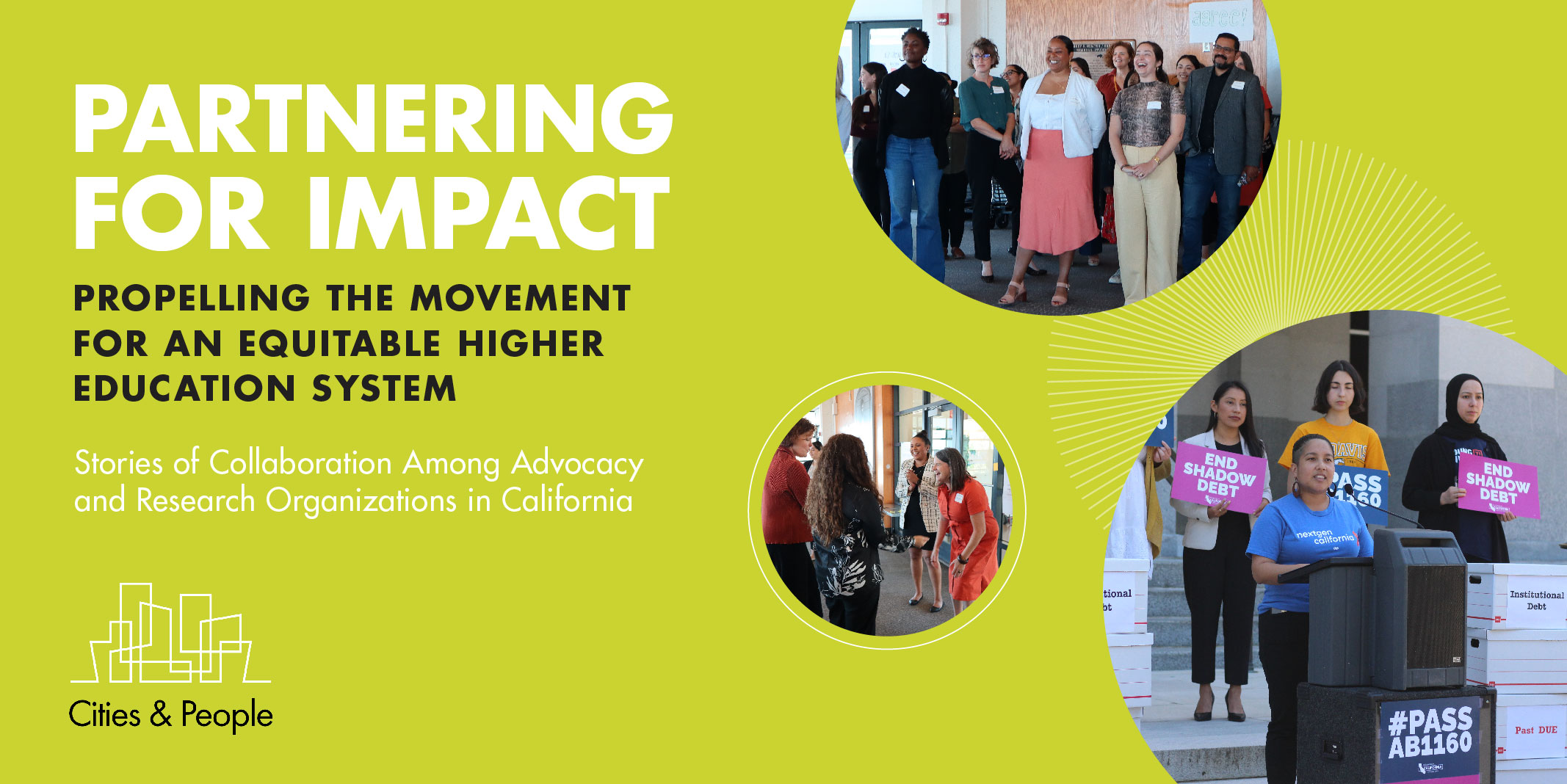Publications & Research
Partnering for Impact: Propelling the Movement for an Equitable Higher Education System

In 2020, College Futures Foundation launched a Policy and Advocacy Ecosystem (Policy Ecosystem) strategy intended to strengthen an ecosystem of grantee organizations working to improve equity in California’s higher education system and foster valuable connections among these organizations. Over the course of four years, the Policy Ecosystem brought 15 nonprofit organizations together to cultivate interactions, share learnings, and build collaborations that enhance their work.
The Policy Ecosystem strategy, led by College Futures Director of Public Policy Ria Bhatt, aims to not only elevate the individual strategies of participating organizations, but also amplify their combined efforts. It prioritizes reducing silos within the higher education field and creating space for interactions that could lead to impactful collaborations. Beyond providing funding to each grantee, this multi-pronged strategy includes the following elements:
- Quarterly Convenings. College Futures brings organizations together regularly, both virtually and in-person, to learn, share knowledge, and connect around issues, trends, information, data, strategies, campaigns, and ideas for impact in the higher education field.
- Enhanced One-on-One Support. Program officers offer attentive and useful consultation, resource and knowledge sharing, and more authentic and purposeful connection with their grantees. The goal here is to provide customized support for each grantee to reduce gaps in their needs and resources as well as to equip them with more tools, relationships, and networks in the field.
- Converging Pathways. The Policy Ecosystem deliberately builds bridges between advocacy and research organizations, often viewed as separate, to co-build awareness, relationships, and strategies toward a shared vision for a more equitable educational landscape.
In 2023, the Foundation initiated a learning engagement led by Cities & People Advisors (C&P), an equity-based consulting firm, to understand if and how the Foundation’s strategy could drive, expand, and deepen movement-building and collaborations. This engagement involved convening observations, surveys, learning circles, and one-on-one interviews with select participants.
C&P found that the vast majority of grantees gained awareness of the work and strategies of the other organizations since joining the Policy Ecosystem, and their participation has helped them leverage the expertise and knowledge of other Ecosystem participants in service of their work. Participants resoundingly agree that each piece of the strategy has added value to their potential for individual and collective impact. Convenings build and help maintain connections, break down silos, and provide space for shared learning. Both the support from program officers and the intentional bridge-building between researchers and advocates have added value to grantee organizations. The presence of advocates and researchers in policy-focused spaces strengthens the work of both and can better hold institutions and systems accountable for improved policy outcomes. Advocates gain insight on evidence-based approaches to champion, and researchers learn what challenges students face that need to be examined.
Key takeaways for philanthropic partners who want to advance movement-building for equitable policy change can be found in a perspective piece coauthored by College Futures Foundation and Cities & People Advisors.
This compendium showcases stories of the partnerships between Policy Ecosystem participants and what they accomplished together since joining the Policy Ecosystem, with respect to their individual missions, areas of mutual concern and opportunity, and the movement toward equity in higher education.
